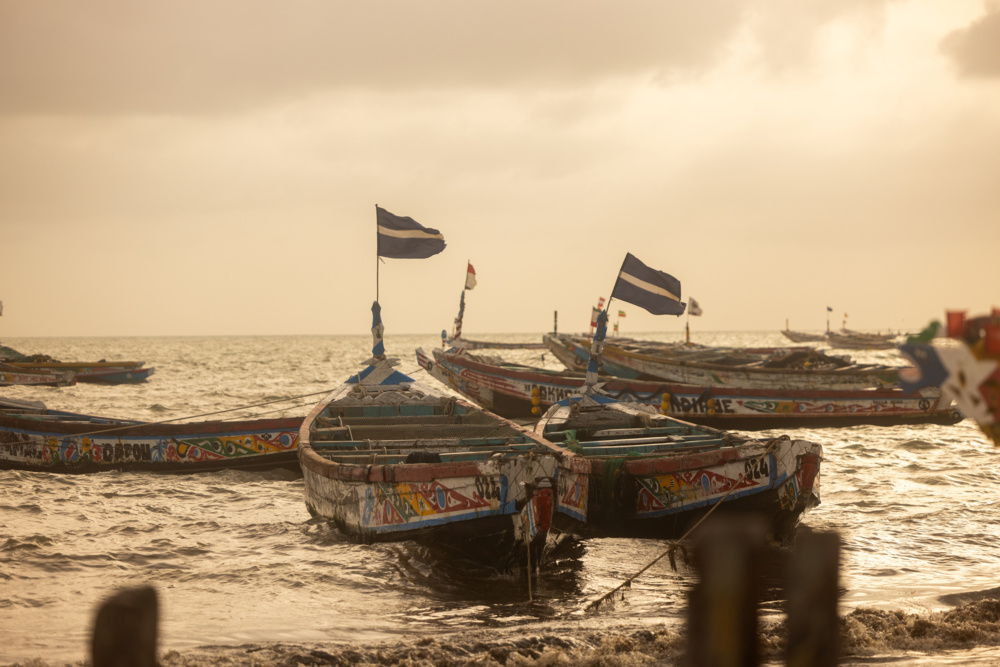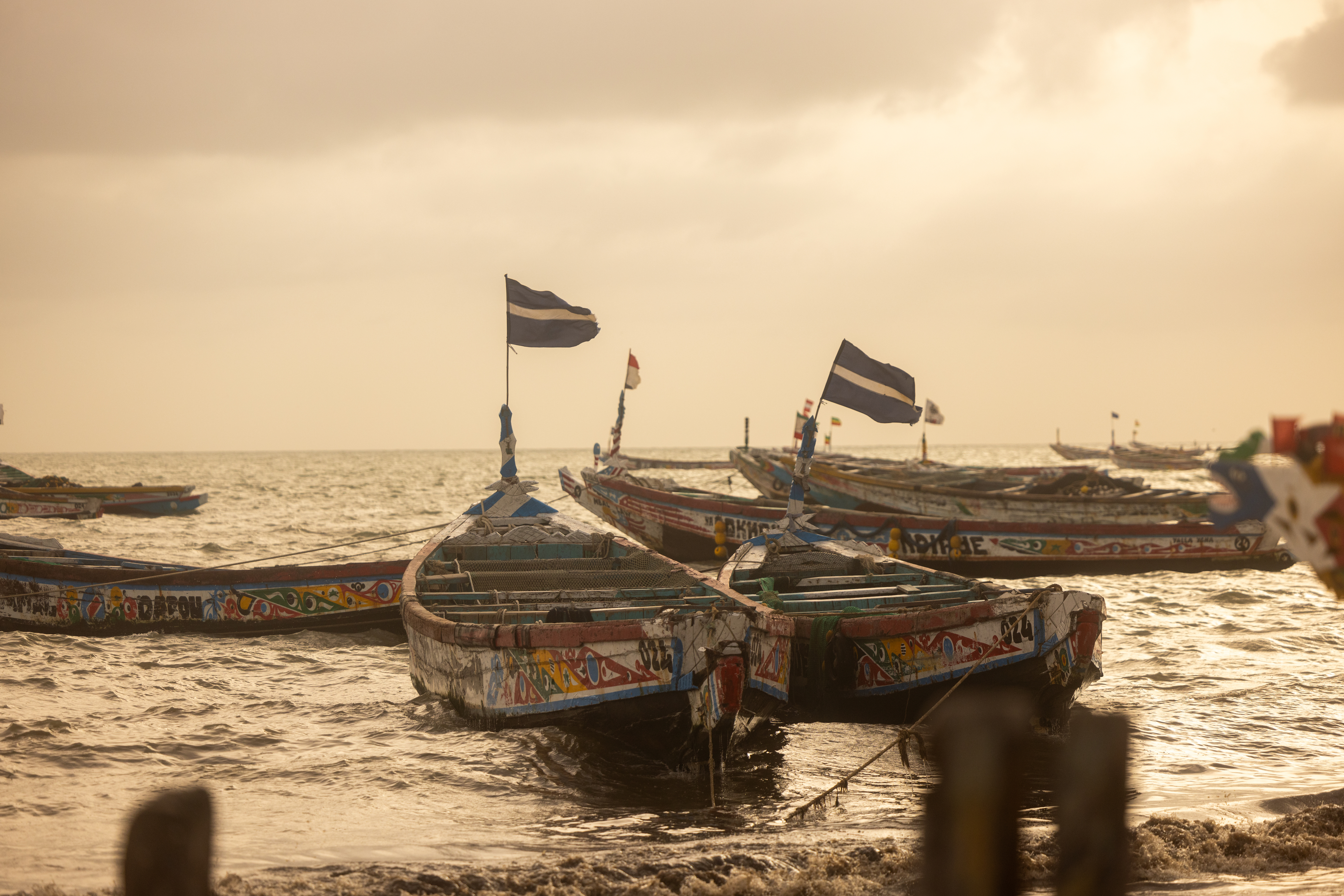
‘The Sea was Sold’: Fisheries crisis in Senegal drives forced migration to Europe
07:00, 13 May 2025, Dakar, Senegal
A new Environmental Justice Foundation (EJF) report and film reveal the profound impacts of overfishing and illegal, unreported, and unregulated (IUU) fishing on Senegal’s fisheries. The resulting declines in fish populations are driving increased forced migration to Europe across Earth's most deadly migration route, leading to over 3000 deaths in 2023 alone.
Based on extensive research and interviews conducted by EJF in Senegal and the Canary Islands, the investigation highlights the growing environmental and socio-economic impacts of increasing foreign industrial fishing. The report provides a stark picture of the challenges faced by a nation where small-scale fishing underpins the coastal economy and food security, says EJF.
Senegal’s fishing sector employs approximately 3% of the workforce and is a critical source of protein, contributing 7.9% of the population’s total intake. Artisanal fishers face mounting threats, particularly from destructive fishing methods like bottom trawling. The situation has been severely worsened by extensive overfishing and illegal fishing by European and Chinese industrial fleets. These fleets, often operating under opaque joint venture agreements, deplete fish populations and exacerbate food insecurity.
The fish caught by the industrial fleets is mostly exported to foreign markets, primarily the European Union and increasingly China. This has severely impacted the livelihoods of coastal communities and contributed to rising poverty, meaning migration has become a necessary coping strategy for many families.
In 2024, the number of migrants entering Spain irregularly reached 63,970, more than double the figure from 2022. A significant proportion reached the Canary Islands, with migrant numbers rising by 200% between 2022 and 2024.
Steve Trent, CEO and Founder of the Environmental Justice Foundation, said: “This critical sector, which forms the socio-economic backbone of Senegal’s coastal communities, is in crisis. Small-scale fishers face overwhelming competition from industrial vessels, leading to deteriorating living conditions, diminished food security, and lost livelihoods. The consequences are far-reaching, contributing to a troubling increase in migrant deaths at sea. The European authorities can and must end this now, and return Senegal’s fisheries to the people of Senegal."
The film follows the story of one young Senegalese fisher who is forced to make the perilous journey to Tenerife and his father, left behind across the Atlantic in their fishing community. Behind each life lost at sea from making this journey is a story much like Abdou’s. In the film, he shares that “some people had the same dream and purpose as me, but they never arrived.”
As local conditions continue to deteriorate and jobs which people have relied on for generations rapidly disappear, it is expected that more Senegalese people will risk this dangerous journey in search of better opportunities.
Karim Sall, President of AGIRE, a Senegalese organisation operating in the Joal-Fadiouth marine protected area, said: “I get so angry when [foreign nations] complain about immigration because they are the real pirates and what they did is worse than clandestine immigration. We are risking our life to go, but they come here to steal our fish. It’s theft - plundering our resources to feed their own inhabitants while we suffer.”
The report outlines key recommendations to end the crisis in Senegal’s fisheries and reduce the need to migrate. These recommendations are directed to the Senegalese government, the European Union, and industrial fishing entities operating in Senegalese waters, urging stronger governance and transparency to support Senegal’s fisheries and the communities dependent on them.
ENDS
Notes to editors
The full report is available here.
To learn more about Abdou’s journey from Senegal to the Canary Islands, watch EJF’s new film here.
Further quotes from migrant fishers, and those left behind:
“On the ninth to tenth day, some fishermen started getting worried because we were not sure if we would land safely, because there was no fuel, no food and no water on board. People started getting sick. Some died. May their souls go to paradise. Some of them had the same dream and purpose that I did. But they never arrived.” Abdoulaye Sady, migrant and former fisher
"If you cannot have food, you [won’t] want to stay in your home. You will evidently go away. You don't even care about the hardships; you only have to go somewhere else to find jobs or something to do. That's the reason why we are making this mission. [The government] made the decision to sell the sea and we made the decision to go away by the sea. " - Abdou Rakhmane Sow, migrant and former fisher
“I lost my sons, nephews, and grandson in this tragedy. I lost my older brother’s son. I can say that I lost almost ten relatives in this shipwreck. It is so heartbreaking… Imagine spending three or four days at sea, and when landing you cannot even get back the fuel costs or any other charges for fishing cannot be covered either. No boats go to sea lately. And that's the difficulties the young people are dealing with, and it caused this tragic death upon them, and that's the most heartbreaking thing.” - Modou Boye Seck, resident in Fass Boye
"I worked as a fisherman for almost 10 years. When I first started, the sea was abundant. But over the years, things became little by little so hard. As the chief [of our families], many people were depending on us, and the sea was not as it used to be. And that's what made us take the risks, and we have hope in coming here. That's why we took the risk to leave our family, our wives, and everyone behind by coming here through the sea because of that hope." - Idrisa, migrant and former fisher
"If I was able to gain enough money in fishing, I would never have come to Europe." - Memedou Racine Seck, migrant and former fisher
About EJF
Our work to secure environmental justice aims to protect our global climate, ocean, forests, wetlands, wildlife and defend the fundamental human right to a secure natural environment, recognising that all other rights are contingent on this. EJF works internationally to inform policy and drive systemic, durable reforms to protect our environment and defend human rights. We investigate and expose abuses and support environmental defenders, Indigenous peoples, communities, and independent journalists on the frontlines of environmental injustice. Our campaigns aim to secure peaceful, equitable and sustainable futures. Our investigators, researchers, filmmakers, and campaigners work with grassroots partners and environmental defenders across the globe. For more information, please contact media@ejfoundation.org.
SIGN UP FOR OUR EMAILS AND STAY UP TO DATE WITH EJF
